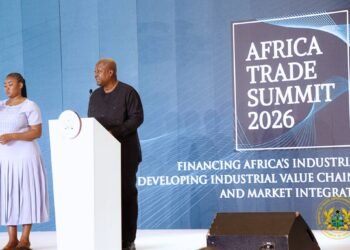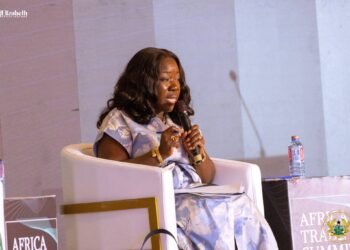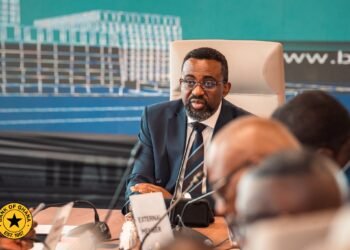Professor Godfred A. Bokpin, an Economist and Lecturer at the University of Ghana has suggested that almost everything happening in the country sends a signal as if the country is founded on fraud.
According to him, the country is not following the right processes to introduce its policies (tax policies) and as such, citizens feel they are being tricked by the government.
“I think we have been using the back doors. When you look at it, it’s almost like introducing something to trick the citizens; that is not good. And perhaps that may explain the reason why compliance is low. Sometimes when you look at the entire country from policy introduction and all of that, it’s as though the country is founded on fraud.
“There is no way we can tax our way out of poverty. We can’t and let’s not try it. If you look at our VAT cumulative rates, it’s one of the highest even among our peers. If you look at our VAT efficiency, it’s also not the best.
He made these assertions at a webinar organized by the PFM Tax Africa Network. Meanwhile, Prof. Bopkin enquired whether there were any empirical studies conducted to estimate the optimal amount the government expects from the introduction of the VAT. He explained that this would have helped the government assess its progress in terms of revenue generation. Additionally, it will help the government to roll out specific policies to help meet the target in the long run.
Rebasing of the economy
The rebasing of the economy has often been cited as the reason for the reduction in the country’s tax-to-GDP ratio. However, Prof. Bopkin indicated that the effect of the rebasing should net out in the long run. He explained that there are emerging areas that hitherto were not captured. So, once they are captured they should also be able to raise some amount of revenue.
On his part, a tax expert, Dr. Abdallah Ali-Nakyea, a panelist on the program, explained that VAT is one of the taxes that is very difficult to evade. He clarified that you can only decide not to pay VAT if you will not enjoy any service. As such, it remains one of the major source of revenue to the government.
“…at least we have the certainty of tax base; that has been one of the biggest challenges in revenue mobilization”.
Dr. Ali-Nakyea however, warned that the government should be circumspect in raising the VAT rate. According to him, the implications of such an act will be detrimental to consumers and the VAT collection units.
Challenges of VAT
Furthermore, the tax expert highlighted other challenges confronting the administration of VAT in the country. Key among them is policy inconsistency. He indicated that certainty in tax policy will help the country maximize its revenues from the VAT.
“The other challenge that I find bad with our VAT over the period is the inconsistency in policy. We have VAT flat rate, we withdrew it. What made us introduce it? What made us withdrew it? What is giving us the thinking to bring it back? And what have we done to ensure why we removed it has been corrected? Because now, the agitations are that it should be withdrawn because of the uneven playing field”.
Dr. Ali-Nakyea, however, agreed with Dr. John Amoh, a tax Lecturer at UPSA who was also a panelist on the program that the introduction of the VAT has resulted in increasing price levels. According to Dr. Ali-Nakyea, the way VAT is being charged in the country is “an endorsement of inflation”. Another challenge he highlighted was the multiplicity of the tax.
Meanwhile, the main speaker of the program, Hon. Seth Terkper, Former Finance Minister, made a presentation on the evolution of VAT in the past 20 years. Mr. Terkper disagreed with people who still hold the view that Ghana has rushed into introducing VAT in the country. He explained that the country went through the due process before finally re-introducing the VAT after it was withdrawn. He indicated that the discussion on taxation should always consider other developments in the economy especially, government borrowing and expenditure. Prof. Bokpin Prof. Bokpin Prof. Bokpin
READ ALSO: Cost of President’s travel wasn’t asked- Dominic Nitiwul























